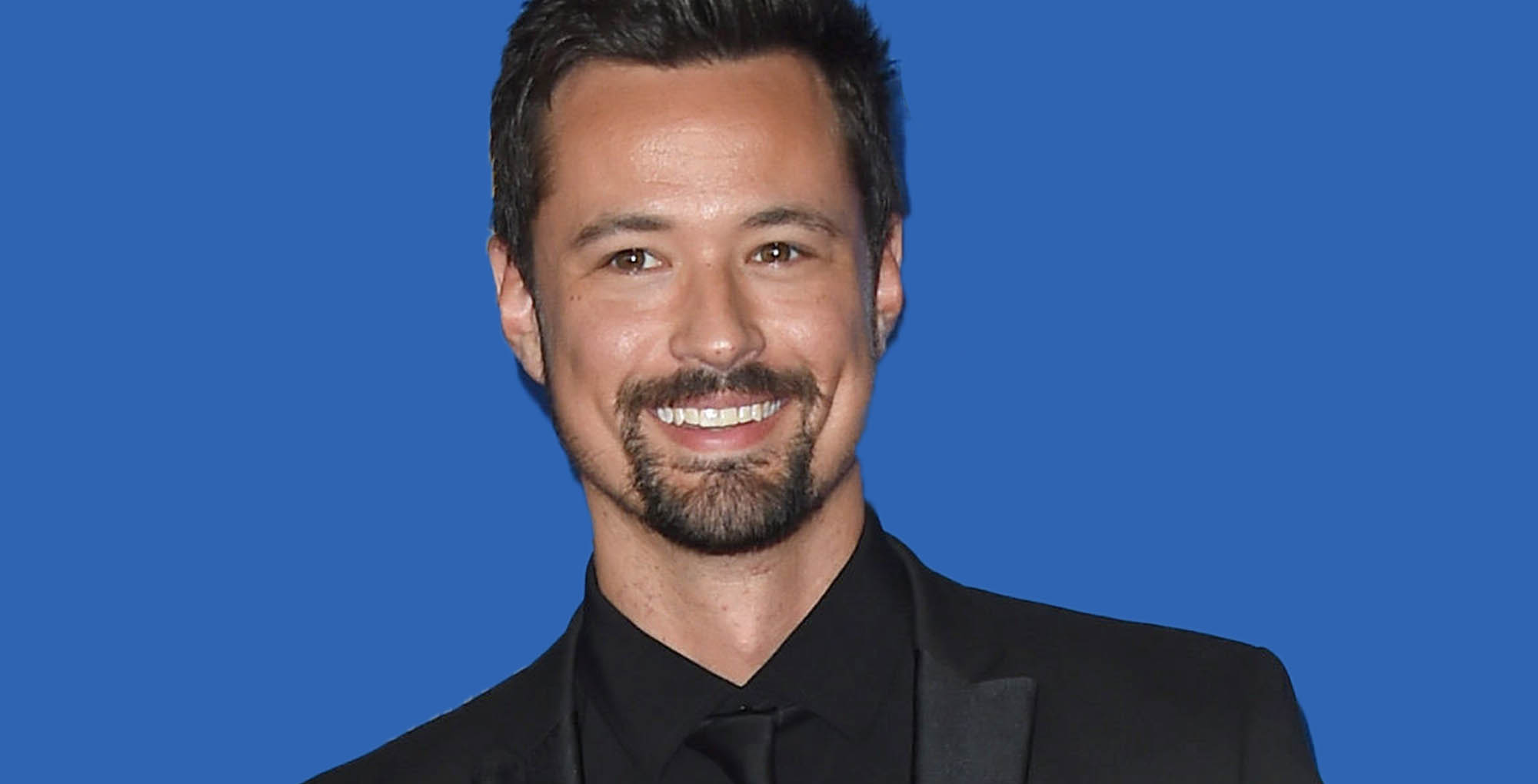Matthew Atkinson - Exploring Beliefs And Actions
When you consider the many ways people think about faith and what it means to live a life with purpose, it's pretty interesting to see how various ideas come together. There are so many different viewpoints, and each one, you know, brings its own flavor to the bigger conversation about what guides us and what we hope to achieve in our time here. It's a rather rich area for anyone who likes to think deeply about life's big questions, offering a lot to ponder about our daily choices and their broader impact.
Sometimes, people like Matthew Atkinson get into deep conversations about how ancient writings might connect with our daily experiences, or how different groups understand the divine in their own ways. It's a bit like looking at a really big picture, trying to make sense of all the individual brushstrokes and how they form a complete scene. These talks, they often help us see things from a fresh angle, prompting us to consider what we truly believe and why, and how those beliefs shape our actions in the world around us.
These discussions, you know, they often touch on things that really matter to us – like what makes an action truly meaningful, or how we figure out what's right when opinions seem to be all over the place. It's about looking closely at ideas that shape how we see the world, and perhaps, how we choose to move through it. There's a lot to unpack when we start thinking about the practical side of our convictions, and how they show up in our everyday moments, or even in bigger societal patterns.
Table of Contents
- What's the Real Scoop on Faith and Action?
- Thinking About Ancient Writings and Modern Life?
- Unpacking Different Views on Belief Systems?
- When Do Actions Speak Louder Than Words?
- Figuring Out What's Right and Wrong - Is it Clear?
- What About Authority and Accountability?
- Can We Truly Know the Divine?
What's the Real Scoop on Faith and Action?
There's a saying that goes something like, if you want to keep things clean, avoid the messes in the first place. This idea, you know, applies to so many parts of our lives, especially when we think about what we believe and how we act on those beliefs. It's a fairly simple concept, but it holds a lot of weight. When we consider how our inner convictions play out in the world, it brings up questions about whether our faith, whatever it might be, truly makes a practical difference. Some old writings, like James 1:26, talk about how someone might think they are a person of faith, but if their words and deeds don't line up, their devotion might not be doing much good. It's about looking at the real-world results of what we hold dear, and seeing if those results are actually helpful or just, you know, empty gestures. This perspective really gets you thinking about the connection between what's in our hearts and what we do with our hands, and how those two pieces fit together, or sometimes, don't.
How does Matthew Atkinson approach true wisdom?
When it comes to figuring out what true wisdom looks like, someone like Matthew Atkinson might point us toward the idea that real understanding shows itself through what it accomplishes. There's a thought that goes, "wisdom is vindicated by its results," as you find in Matthew 11:19, with a little extra note. This basically suggests that the genuineness of a smart way of thinking isn't proven by fancy words or grand claims, but by the good things that come from it. If a path of thought leads to positive outcomes, if it helps people, or makes things better, then that's a pretty good sign it holds something valuable. It's a very practical way to look at things, focusing on the actual difference something makes in the world. So, for Matthew Atkinson, it seems, the proof of a good idea is really in how it plays out, in the fruits it bears, rather than just the idea itself. It’s about the real-life impact, you know, the way things actually turn out when you put certain principles into motion.
Thinking About Ancient Writings and Modern Life?
It's interesting to consider how words from long ago can still hold meaning for us today, isn't it? Sometimes, a word that seems pretty straightforward can have a much deeper sense when you look at its original language. Take, for instance, the old Greek word that's sometimes translated as "emptied." Literally, it means to take out what's inside something, to make it hollow. But, you know, in certain writings, like those by Paul, this word is used in a more symbolic way, referring to someone like Jesus. It's not about physically emptying something, but about a kind of self-giving, or letting go of certain privileges or positions. This shows how language, especially in old texts, can have layers of meaning that go beyond the surface. It’s a bit like peeling an onion, where each layer reveals something new about the core idea. So, when we read these old stories, it’s not always just about the plain words, but also about the deeper feelings and ideas they were trying to share, which is pretty cool if you ask me.
What does Matthew Atkinson consider about interpreting old texts?
When we look at old stories and teachings, it's pretty common to wonder about their origins. For example, some people might say, "Jesus didn't say that, Matthew wrote it." This brings up a good point about how we get our information and how it's passed down. It reminds us that many of the stories and sayings we attribute to historical figures were actually written down by others, often after the fact. So, for Matthew Atkinson, or anyone really thinking about these things, it means we need to consider the source, the person who put the words on paper. It's not to take away from the message, but just to be aware of the filter through which it came to us. This perspective encourages a more thoughtful approach to old writings, asking questions about authorship and context. It’s about being honest about how these stories were put together, and what that might mean for how we understand them today. You know, it’s a way of being respectful to the text while also being smart about its history.
Unpacking Different Views on Belief Systems?
It's pretty clear that not everyone shares the same idea of a higher power, or even the same set of beliefs. Some might say, "It is not everyone's god." This is a straightforward observation, really, about the vast array of spiritual paths and understandings that exist in the world. It’s only the god of the Abrahamic religions, some might point out, referring to the traditions of Judaism, Christianity, and Islam. And even within those, you know, people can't always agree on what their shared divine figure says, does, or wants. This kind of difference in interpretation can be quite striking, and it highlights how varied human understanding can be, even when starting from a similar point. It’s a bit like looking at a tree with many branches; while they all come from the same trunk, they reach out in so many different directions. This reality, it just shows how diverse our world of beliefs truly is, and how personal those understandings often are.
Matthew Atkinson's thoughts on shared beliefs?
When considering how people with similar foundations in belief can still have wildly different interpretations, Matthew Atkinson might reflect on the ongoing disagreements within groups that share a common heritage. For instance, the fact that even within the Abrahamic traditions, people sometimes struggle to agree on core messages or divine will, is quite telling. This isn't just a minor squabble; it can lead to very different ways of living and understanding the world. It suggests that while a common source might exist, the human element of interpretation, the way we each process and understand things, plays a very significant role. It's a bit like everyone reading the same book but coming away with their own unique take on the story. This kind of divergence, you know, can make conversations about shared beliefs quite layered, showing that even with a common starting point, our paths of understanding can really branch off in distinct ways, which is something worth thinking about.
When Do Actions Speak Louder Than Words?
Sometimes, the actions of groups or individuals can seem to speak much more loudly than any stated intentions. There are instances where certain writings appear to encourage conflict until a particular belief system is dominant. This can be seen, for example, in the idea that some verses command followers to fight until a specific faith reigns supreme. And, you know, when you look at ongoing struggles in places like the African Sahel, or other parts of the world, some might argue these are a direct consequence of such clearly stated directives. It suggests that words, especially those held as sacred, can have a very real and sometimes unsettling impact on the world. It’s a stark reminder that what people believe and what they are told to do can lead to very tangible, and sometimes difficult, situations. This connection between old texts and current events is something that really makes you stop and think about the power of ideas, and how they shape human behavior in pretty dramatic ways.
Does Matthew Atkinson weigh in on the impact of teachings?
When we think about how certain ideas or teachings play out in the world, someone like Matthew Atkinson might bring up the idea that deceit can be a big problem, especially when it leads people astray. There's a thought that deception is a dominant trait for some, particularly when they cause followers to wander from a path. Instead of just talking about it, a person's actions often show what they truly mean, or what their principles really are. This aligns with the idea that "wisdom is vindicated by its results," as mentioned earlier. It’s about letting what you do be the real message, rather than just what you say. So, when circumstances call for it, the way someone acts, their actual behavior, can be a much clearer indicator of their true intentions or beliefs than any words they might utter. This perspective really puts the focus on the practical side of things, showing that what we do, you know, often tells a more complete story than what we simply profess.
Figuring Out What's Right and Wrong - Is it Clear?
It's not always easy to tell what's truly right or wrong, is it? Sometimes, when a situation is really complicated, opinions can be pretty evenly split on whether someone is guilty or innocent. This is why, for example, a first trial might end up with a hung jury, meaning they couldn't come to a clear decision. It just shows how tricky it can be when people look at the same set of facts but draw different conclusions. This kind of split, you know, isn't uncommon, and it reminds us that what seems clear to one person might be quite murky to another. It highlights the idea that sometimes, there isn't a single, obvious answer, and that different perspectives can hold equal weight, making it hard to find a universal agreement on what the truth might be. It’s a bit like trying to solve a puzzle where some of the pieces just don’t seem to fit perfectly together, leaving room for different ways to see the whole picture.
Where does Matthew Atkinson stand on clear answers?
When it comes to finding clear answers, Matthew Atkinson might be someone who looks for solid proof, or at least a good reason to believe something. For instance, if an assertion is made, and then later someone shows that it's not quite right, that's a pretty strong way to disprove it. It's about presenting information that directly challenges a claim. This approach suggests a preference for evidence and logical reasoning over mere statements or opinions. It’s a way of saying, "Show me the facts," rather than just accepting things at face value. So, for Matthew Atkinson, it seems that if you're going to put something out there as true, it helps to have a good basis for it, and to be ready for others to examine it closely. This kind of thinking encourages a healthy dose of critical thought, where claims are put to the test, and, you know, the truth is sought through careful consideration and counter-evidence.
What About Authority and Accountability?
It’s always a big deal when someone in a position of authority faces consequences for their actions, isn't it? We often hear about people who are supposed to be "the best," and then something happens that makes us question that idea. For example, a lawyer named Kenneth Chesebro, who was said to be a key player in a scheme involving false electors, has been disbarred. This kind of event really gets people talking about accountability and what happens when those in power, you know, don't live up to the trust placed in them. It's a reminder that even people at the top of their fields are subject to rules and expectations, and when they cross lines, there can be serious repercussions. It’s a bit like seeing a grand building that suddenly shows cracks in its foundation; it makes you wonder about the whole structure. This sort of situation really highlights the importance of integrity, no matter what your role might be, and what happens when that integrity is called into question.
Matthew Atkinson's perspective on leadership?
Thinking about how people in charge conduct themselves, Matthew Atkinson might consider the idea that those who claim to be "nothing but the best" should truly embody that standard. The bible, too, offers some pretty clear ideas about behavior and consequences. For instance, it speaks about a time when a figure declares, "I never knew you." This kind of statement, you know, suggests a strong separation or rejection based on actions, not just words. It implies that genuine connection or approval comes from a certain way of living, rather than just a title or a claim of excellence. So, for Matthew Atkinson, it seems that real leadership or genuine worth isn't just about what you say you are, but what you actually do, and how you behave over time. It’s about the consistent display of good character and ethical conduct, and the understanding that true recognition comes from a life well-lived, rather than just a position held. This outlook really puts the emphasis on deeds, and how they define a person's true standing.
Can We Truly Know the Divine?
Trying to pin down the exact identity of a divine being can be quite a challenge, can't it? Especially when we're told that no human has actually seen a higher power directly. There are stories, of course, like Moses' experience, which some might see as a momentary glimpse of a great light or a powerful presence. But even then, you know, it's often described as an experience of radiance, something too immense to fully grasp or look at head-on. This idea really makes you think about the limits of human perception when it comes to something so vast and, well, beyond us. It suggests that the divine might be something that we can only experience in part, or through certain feelings, rather than something we can fully define or picture in our minds. It’s a bit like trying to hold water in your hands; you can feel it, but you can’t really contain it completely. This mystery, it just adds to the wonder and the endless questions people have about the very nature of existence and what might lie beyond our everyday world.
Matthew Atkinson on the mystery of the divine?
When thinking about the nature of the divine, Matthew Atkinson might consider how challenging it is to fully grasp something that is said to be beyond human sight. The idea that "no man has seen god," with Moses' story as a notable exception, really highlights this mystery. And, you know, even Moses' experience is often described as an encounter with an overwhelming brilliance, a kind of shining light, rather than a clear physical form. This suggests that the divine might be something that exists in a way that our senses can't fully process, something that is perhaps more about feeling or spirit than about tangible presence. It’s a bit like trying to describe a color to someone who has never seen it; you can use words, but the full experience remains elusive. For Matthew Atkinson, this might mean that the divine is something to be approached with a sense of wonder and humility, acknowledging that some things are just, well, beyond our complete grasp, and that’s perfectly alright. It encourages a kind of openness to what we don't fully comprehend, which is a very thoughtful way to approach such profound questions.

Matthew Atkinson - Biology

Pictures of Matthew Atkinson

Matthew Atkinson Biography -- The Bold and the Beautiful